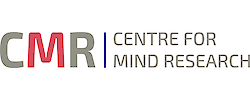Psychotherapy
Psychotherapy is always tailored to the individual human therapy. Our clinic offers a range of scientifically recognized and clinically proven procedures. You will decide together with your treatment team on the selection or combination of the procedures below.
Interpersonal psychotherapy (IPT) is an extremely effective therapy that has been specifically tailored for the treatment of depression and its effectiveness has been proven many times over. IPT explains depressive disorder as a multifactorial disease that always develops in an interpersonal and psychosocial context. The main focus not only considers the individual but his entire frame of reference. For this reason, the therapeutic work is based on the patient's current life relationships that are related to the depressive episode (e.g., loneliness / social deficits, interpersonal conflicts, role changes e.g. in the context of maternity or retirement, grief and loss). In addition to the emotional handling of interpersonal problems and the imparting of social skills to overcome the difficulties, the constructive handling and reduction of depressive symptoms is achieved through the imparting of effective strategies. Specific interpersonal techniques (eg communication analysis) as well as techniques of other therapy schools (e.g. role playing games) are used and have proved to be successful in the empirical examination.
The IPT is conducted as an individual or group therapy. It has a structured, educational (i.e. explanatory) and exercise-oriented character and is based on the active cooperation of the patient (independent development of materials, homework to practice and solidify learned strategies).
Schema therapy according to Jeffrey E. Young is an extension of behavioural therapy and integrates findings and techniques from psychodynamic, attachment theory and figure therapy concepts. It has thus become a psychotherapeutic method that combines elements of coping and clarification, while at the same time understanding the therapeutic relationship as a central component of the therapeutic process.
At the centre of this form of therapy are the so-called schemata that arise in childhood and run like a red thread through a person's life. A scheme affects both the person him/herself and the relationship with other people. It often has its origins in childhood and youth and can develop throughout life.
Schemes are conceived as a memory structure of a broad pervasive theme or pattern, a whole that represents bodily reactions, bodily sensations, emotions and cognitions, especially pictorial ideas and episodic memories, and is ultimately reflected in behaviour.
In therapy, various cognitive and experiential techniques are used to expose the obstructive schemata involved in the development or maintenance of a mental illness and to change them in such a way that thinking, experience and behaviour are permanently changed for the better.
Cognitive behavioral therapy is based on the realization that feelings are largely caused by automatic thoughts and persistent attitudes. By self-damaging, irrational beliefs such as catastrophizing ("That's all going to go wrong") or the black and white thinking ("If I can not do that, I'm a failure") develops a negative self-image, the emergence of a psychic may favor interference. The goal of the therapy is to change these irrational, unhealthy thoughts and attitudes. In therapy, these thought patterns and attitudes are made aware and their origin clarified in the biography of the patient. Cognitive restructuring questions and validates these attitudes and develops new, more helpful strategies and thought patterns.
In addition to the processing of thought patterns, concrete behavioral techniques are also learned in cognitive VT. The basic assumption is that behavior has been learned and therefore can be unlearned again. Exercises on social competence (e.g. self-confident behavior, saying "no", expressing wishes, asserting its right, expressing feelings, making contacts), self-confidence training, relaxation procedures and confrontational methods for reducing fears and constraints are used.
The good efficacy of cognitive behavioral therapy has been scientifically proven many times over. It has proven to be particularly effective in the treatment of depression and anxiety. But other disorders can be successfully treated with this therapy. Due to its high efficacy, behavioral therapy is one of the health insurance companies recognized treatment methods and the costs of therapy are usually taken over by the health insurance company.
So far, long-lasting depression has been considered by the clinicians as largely resistant to treatment with regard to the usual psychotherapeutic interventions. For some time, the range of treatment offered by the UKB's department of psychiatry and psychotherapy has expanded to include the Cognitive Behavioral Analysis System of Psychotherapy CBASP.
The CBASP is the only worldwide psychotherapy program specifically designed to treat long-lasting depression and has proven to be effective. In combination with a drug treatment CBASP provides the most promising therapy for prolonged depression! In this US-developed manualized procedure, therapists must have acquired very specific skills. Psychotherapists of the clinic are among the very few certified practitioners in Germany.
The CBASP, with its innovative approach to psychotherapy, clearly distinguishes itself from the commonly used psychodynamic, behavioral, and reinforcement-theoretical-interpersonal psychotherapy procedures as cross-school psychotherapy. Thus, the key to a change in behavior is derived in the chronic condition of the patient, because any behavior that relieves chronic stress can be exacerbated if the therapist is alert and helps the patient identify which behavior is causing the symptoms to decrease has led. In the treatment, patients learn to perceive themselves as actors in their relationship to the environment and to change their social behavior so that they achieve more often what they want.
The treatment takes place in Bonn in two phases: The inpatient treatment phase includes the attitude to a stable psychotropic medication as well as the preparation for the actual psychotherapy phase. The psychotherapy phase is done on an outpatient basis.
The process is novel and innovative. It therefore does not yet belong to the procedures of so-called policy psychotherapy. Therefore, the reimbursement of expenses for legally insured persons is not automatically guaranteed, but experience shows that there are no problems for patients with health insurance for chief medical treatment.
For clinical trials, outpatient treatment with CBASP is currently not available.

















